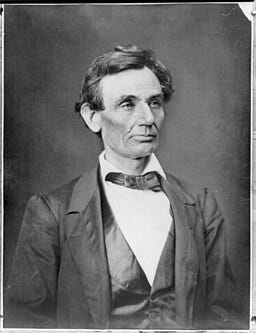There’s More to Gratitude Than Counting Your Blessings
In this week’s Editor’s Corner, David Masci argues that being thankful also helps us see the world in a clearer light

Like so many commonsensical notions, gratitude has become an industry. Psychologists and self-help gurus are building careers telling us—correctly, no doubt—that being thankful is an important key to personal happiness. Search for “gratitude journal” on Amazon and literally hundreds of entries pop up, most offering a notebook in a soft, reassuring color scheme and many pitched to a specific demographic, from Christian men to Black women. Search for “gratitude practice” and a staggering array of articles and books appears.
But much of what’s written about gratitude today, especially in the self-help space, treats it like meditation or positive thinking: one of many options in our personal fulfillment toolbox. Of course, there is nothing wrong with this. Quite the contrary, if writing in a daily gratitude journal or cultivating gratitude practice helps people live better lives, that’s wonderful. And given how ungracious the world has become, the more gratitude the better. Still, there is more to gratitude than simply being thankful for one’s blessings, as important as that is.
I’ve always thought of gratitude as a great virtue and have often wondered why it wasn’t included as one of the famous seven, especially since the list was compiled by early Christian thinkers who likely gave thanks several times a day. The idea that gratitude is a foundation of virtue is true in part because so much of the opposite of virtue—what the same early thinkers called vice—often comes from a place of anger, and it’s hard to be angry and grateful at the same time. Given the destructive role that outrage plays today in our politics and our culture, this is no small thing.
But gratitude also bestows another great gift on its practitioners, that of perspective. Or maybe it’s better to say that a lack of gratitude can lead to a lack of perspective, since it’s hard to understand how the world works when we don’t acknowledge all that has gone into making that world possible.
This lack of perspective can play out in many ways, impacting us at both individual and societal levels. Not too long ago, for instance, I watched someone loudly and publicly lose his temper when his phone stopped working in some way or another. As I listened to a profanity-laced tirade against Apple and Steve Jobs, I wondered whether he had ever considered that the small device in his hand was more powerful than a 1980s supercomputer. I admit that I smugly smiled to myself as this scene unfolded, until I remembered my own upsets and even meltdowns over similar inanities.
One does not need to be grateful specifically to Apple or Steve Jobs, especially given how much an iPhone costs these days. However, there is a kind of gratitude in understanding and appreciating the basic truth that we have access to life-improving and even lifesaving technologies that our not-so-distant ancestors could not have imagined. Even when these technologies occasionally fail us, they are still miraculous.
A lack of gratitude can lead to a larger, society-wide loss of perspective as well. Americans often take for granted the most basic things—safety, mobility, opportunity—that people in many other parts of the world lack. Yes, we have many problems that urgently need fixing. But one reason we’re stymied in our efforts to make things better is that we’re also fighting over ridiculous and unimportant pseudo-problems. Here, gratitude can be a clarifying tonic.
A good example of what I’m talking about comes from the story of the Thanksgiving holiday. While most Americans’ understanding of Thanksgiving begins and ends with the Pilgrims in 1621, the national holiday that we now celebrate was largely initiated by President Lincoln in October 1863, during the very middle of the most destructive conflict in the nation’s history.

It might seem odd that two and a half years into the Civil War, Lincoln was urging Americans to be thankful for anything. For starters, his Thanksgiving proclamation came just a few months after the carnage at Gettysburg, at a time when it was by no means certain that the Union would prevail against the Confederacy. And yet, the text of the president’s proclamation points out that in spite of the severity of the war, the Union’s economy and its population had continued to grow. He also noted, less than a year after the Emancipation Proclamation, that there had been “a large increase of freedom” and that the rule of law and the maintenance of order had not collapsed during the conflict. In urging Americans to give thanks, Lincoln was providing them with the very perspective they needed, clearing away a little of the fog of war and reminding them that there was still much to be grateful for ... and worth fighting for.
Today, 160 years later, the Civil War is, thankfully, long behind us. But still the U.S. is riven with angry division and beset by seemingly intractable problems, making Americans understandably concerned about the future.
And yet, as we gather together in a few days for Thanksgiving, there remains so much to be grateful for, from the bounty that will grace many of our tables to the unparalleled freedoms we still enjoy. Understanding this will not make our divisions and our problems disappear, but it will cast them in a clearer and less dire light. And while there will still be much to be angry about, we will be able to better discern what should actually warrant our anger—and even our outrage—and what should not. And that, in itself, will be something to be thankful for.
Meanwhile ...
What I’m watching: Thanksgiving has not inspired filmmakers in the way that Christmas has. Not even close. Moreover, a lot of films set during Thanksgiving are often not really about the holiday and its meaning but instead use the day as a vehicle to bring together dysfunctional families or unpleasant characters. Still, a surprisingly large number of well-known films—“Rocky,” “Scent of a Woman” and “Planes, Trains and Automobiles,” to name but a few—either are set during the long holiday weekend or at least have a Thanksgiving scene.
My favorite of these Thanksgiving-adjacent films is “The Ice Storm.” Set in a New York City suburb during the Thanksgiving of 1973, the movie centers around two upper-middle-class families that, on the surface at least, have much to be thankful for and yet aren’t feeling terribly grateful. The adults, wonderfully played by a cast that includes Kevin Kline, Joan Allen and Sigourney Weaver, are deeply unhappy and confused. Their children, played by a number of young actors who would soon go on to greater success, including Toby McGuire, Elijah Wood and Christina Ricci, aren’t doing much better than their elders.
Directed by Ang Lee, this wonderfully evocative movie deals with many of the social ills that came to characterize that troubled decade, including substance abuse and the hollow underside of the sexual revolution. The ice storm of the film’s title refers to both the emotional detachment of most of the characters as well as an actual storm that crashes into their lives on the night after Thanksgiving. As the movie unspools toward a kind of reckoning, director Lee skillfully mixes dark, sad and funny elements to both move and entertain you. And while I wouldn’t exactly say the movie embodies the spirit of Thanksgiving, there is a moment at the very end that will certainly make you think about the important things we all need to be thankful for.
While I’m at it: Right after completing “The Ice Storm,” Ang Lee turned his attention to a completely different genre, filming a Western of sorts about Confederate guerrillas fighting in Missouri during the Civil War. The resulting film, “Ride With the Devil,” deftly depicts the stupidity and inhumanity of war through the slowly maturing eyes of a young man, also played by Toby McGuire. Jeffrey Wright, Mark Ruffalo, Simon Baker and James Caviezel round out a fine cast. Give it a try.
And finally: Next week, my colleague Christina Behe will be in the Editor’s Corner talking about Christmas movies and economic escapism. Sounds interesting. Until then, I wish you and yours a wonderful Thanksgiving.
New This Week
William Roberts, “Biden, Xi Seek Stability in San Francisco Summit”
Nathan Goetting, “A College Free Speech Crisis: The Challenge of Complicit College Administrators”
Christina Behe, “The Editor’s Corner: Strike Up the Band”
Stone Washington, “What America’s Recent Bank Failures Tell Us About ESG Phasing”
Jordan K. Lofthouse, “Internet Access Is a Key Component of Native American Economic Development”
From the Archives
Zachary Shore, “The China Challenge: America as a Rising Power”
Seth Moskowitz, “No Labels, No Chance”
Andrew Jason Cohen, “How To Talk Politics at Thanksgiving Without Causing a Family Feud”


